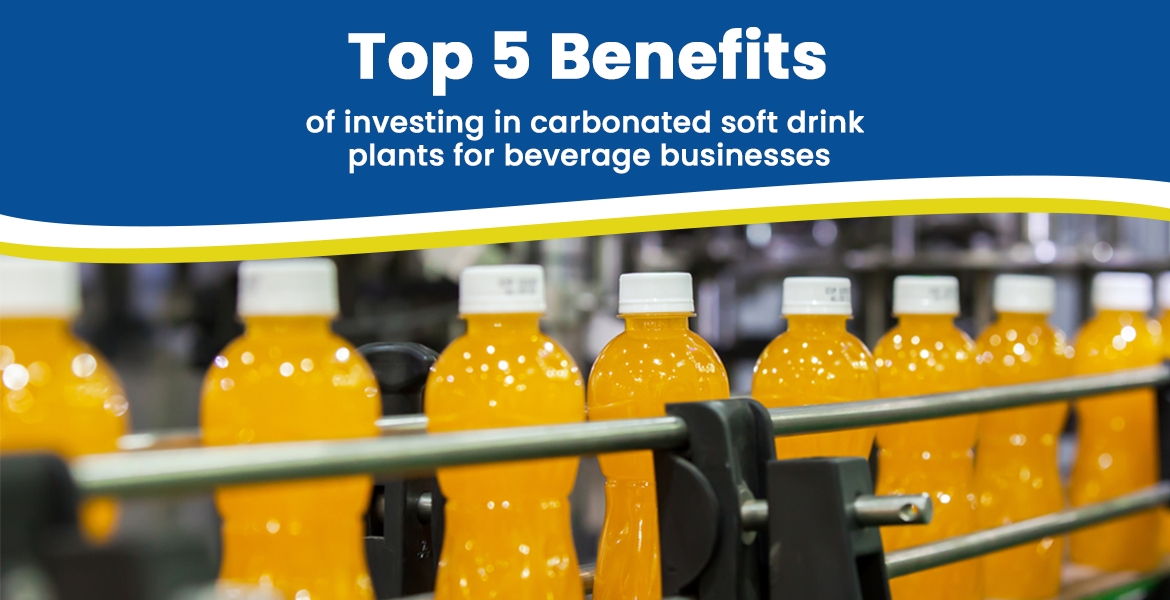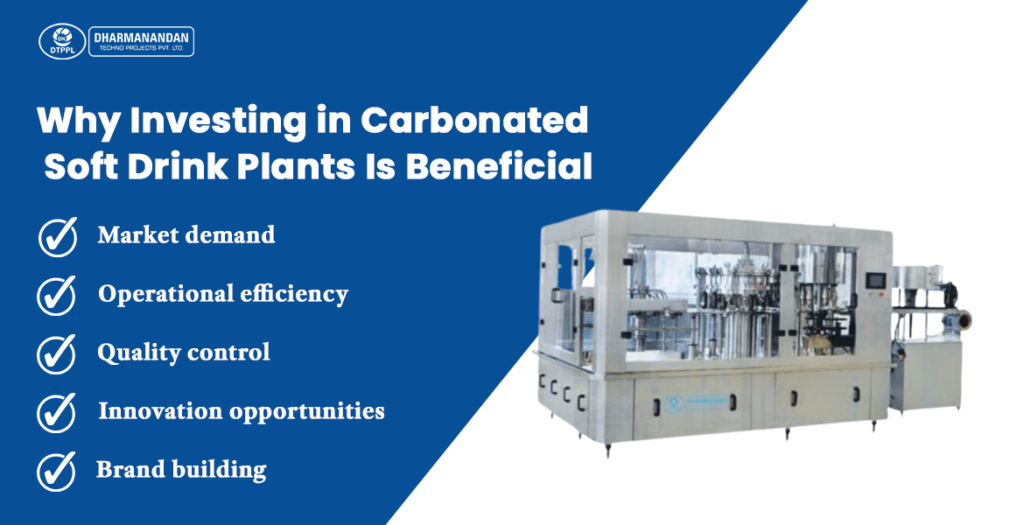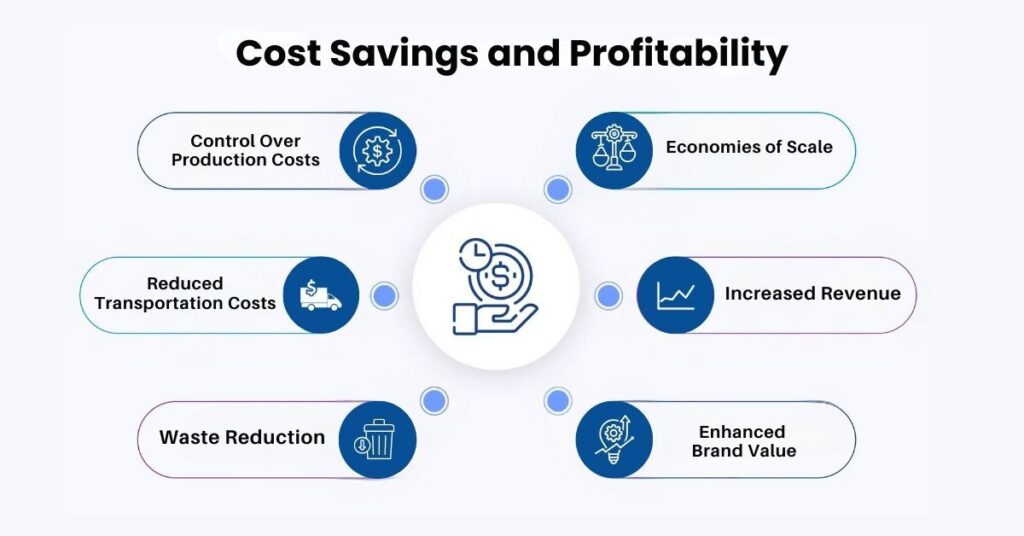
Table of Contents
Top 5 benefits of investing in carbonated soft drink plant for beverage businesses
May 29, 2024
In the competitive landscape of the beverage industry, strategic investments in a carbonated soft drink plant can make a significant difference in a company’s success. Investing in soft drink plants offers numerous advantages that go beyond simple production. From product diversification and customization to substantial cost savings and increased profitability, these investments provide businesses with opportunities for growth and innovation. Maintaining high-quality control and brand consistency also becomes easier, allowing companies to build a strong market presence. Furthermore, embracing sustainability and environmental benefits not only meets regulatory standards but also appeals to the environmentally conscious consumer. This article explores the top five benefits of investing in a carbonated soft drink plant, highlighting why this move can be a game-changer for beverage businesses.
Why Investing in Carbonated Soft Drink Plants Is Beneficial
In the ever-evolving landscape, businesses are constantly seeking avenues for expansion. One lucrative avenue is venturing into the realm of the soft drink plant business. Here’s why it’s worth considering:
Market Demand: Carbonated beverages enjoy widespread popularity globally. Establishing a carbonated soft drink plant enables businesses to capitalize on this demand, diversify their product offerings, and cater to a broader consumer base.
Operational Efficiency: Leveraging modern technologies in drink plant operations enhances production efficiency. This not only optimizes costs but also boosts overall productivity, enabling businesses to stay competitive in the market.
Quality Control: Owning a soft drink plant grants businesses full control over the quality of their products. This ensures adherence to stringent quality standards and enables them to consistently deliver products that meet and exceed customer expectations.
Innovation Opportunities: With their plant, businesses gain the freedom to experiment with new flavors and product variations. This fosters a culture of innovation, allowing them to introduce unique and captivating beverages that set them apart from competitors.
Brand Building: Producing carbonated soft drinks in-house strengthens a business’s brand identity. It demonstrates a commitment to excellence and reinforces consumer trust, ultimately fostering brand loyalty and longevity in the market.
In summary, investing in a soft drink plant offers numerous benefits for beverage businesses, including expanded market presence, heightened operational efficiency, and enhanced brand visibility. However, thorough planning and diligent research are essential prerequisites to ensure a successful investment venture.

Product Diversification and Customization
In the ever-evolving beverage industry, businesses like drink manufacturers are always looking for ways to innovate and grow. This is where product diversification and customization come into play in a beverage production facility:
Product Diversification: Owning a beverage production facility allows businesses to diversify their product range. They can produce a variety of carbonated drinks, from classic colas to exotic fruit flavors. This diversification can cater to a broader consumer base and open up new market segments.
Customization: With their beverage production facility, businesses have the flexibility to customize their products. This could mean creating unique flavor combinations, offering low-sugar or sugar-free options, or even producing limited-edition flavors for special occasions or markets.
Brand Differentiation: Diversification and customization can help a brand stand out in the crowded beverage market. Unique and customized products can become a brand’s signature, making it recognizable and preferred by consumers.
Responding to Market Trends: The beverage market is dynamic, with consumer preferences constantly evolving. A beverage production facility allows businesses to react quickly to these trends. For instance, if there’s a growing demand for healthier beverage options, the plant could start producing carbonated drinks with natural sweeteners or added vitamins.
Increased Revenue Streams: Diversified and customized products can lead to increased sales and revenue. They can attract different consumer groups and create opportunities for premium pricing for unique, personalized beverages.
Investing in a beverage production facility offers beverage businesses the opportunity to diversify and customize their product offerings. This not only helps in meeting varied consumer demands but also provides a competitive edge in the dynamic beverage market.
Cost Savings and Profitability
Investing in a beverage production facility can lead to significant cost savings and increased profitability for a beverage business. Here’s how:
Economies of Scale: Operating at a large scale allows for cost savings per unit as output increases, boosting profit margins.
Control Over Production Costs: Direct control over production costs, including raw materials and energy, can lead to savings.
Reduced Transportation Costs: A strategically located facility can cut transportation costs and ensure quicker product delivery.
Waste Reduction: Modern facilities are designed for minimal waste, promoting resource efficiency and cost savings.
Increased Revenue: Flexibility to respond to market trends and introduce new products can drive sales and revenue growth.
Enhanced Brand Value: In-house production of high-quality beverages can improve brand reputation, leading to customer loyalty and premium pricing.
Investing in such a facility is a strategic move that can yield long-term financial benefits.

Quality Control and Brand Consistency
Investing in a beverage production facility, such as a plant for carbonated drinks, can lead to significant benefits for a beverage business. Here’s how:
Quality Control: Owning a production facility allows businesses to have complete control over the quality of their products. They can ensure that all beverages produced meet their standards for taste, safety, and nutritional value. Regular testing and monitoring of the production process help in maintaining the highest quality standards.
Brand Consistency: Consistency in the taste and quality of the beverages is key to building a strong brand. A production facility allows businesses to ensure that every batch of their product is consistent with the last. This consistency helps in building customer trust and loyalty.
Adherence to Regulations: Production facilities must adhere to various food safety and quality regulations. Having control over the production process makes it easier for businesses to ensure compliance with these regulations, thereby maintaining the quality and safety of their products.
Efficient Issue Resolution: If any quality issues arise, having your production facility allows for quicker identification and resolution of these issues. This can prevent large-scale product recalls and protect the brand’s reputation.
Customer Satisfaction: Ultimately, maintaining quality control and brand consistency leads to higher customer satisfaction. When customers know they can rely on the consistent taste and quality of your beverages, they are more likely to remain loyal to your brand.
Investing in a production facility can significantly enhance a beverage business’s ability to maintain quality control and brand consistency. It’s a strategic investment that can lead to long-term benefits in terms of customer loyalty and brand reputation.
Market Expansion and Competitive Edge
Investing in a carbonated soft drink plant can provide a significant competitive edge for a beverage business and open up opportunities for market expansion. Here’s how:
Market Expansion: Owning a soft drink plant allows businesses to expand their market reach. They can cater to new markets and demographics, thereby increasing their customer base and market share.
Competitive Edge: A beverage production facility gives businesses control over their production process, allowing them to ensure the quality of their products and respond quickly to market trends. This agility can provide a significant competitive edge in the fast-paced beverage industry.
Brand Recognition: Producing high-quality carbonated soft drinks can enhance a brand’s reputation and recognition in the market. This can attract more customers and lead to increased sales.
Innovation: Having their soft drink plant allows businesses to innovate and introduce new products to the market. This can help them stay ahead of the competition and meet changing consumer demands.
Customer Loyalty: By consistently delivering high-quality beverages, businesses can build customer loyalty. Loyal customers are more likely to choose your products over competitors, contributing to long-term business success.
Investing in a carbonated soft drink plant can provide a beverage business with a competitive edge and opportunities for market expansion. It’s a strategic investment that can lead to increased brand recognition, customer loyalty, and business growth.
Sustainability and Environmental Benefits
In today’s world, sustainability is not just a trend, but a necessity. Soft drink plants have a role to play in this, offering several environmental benefits:
Resource Efficiency: Modern soft drink plants, also known as beverage production facilities, are designed to be resource-efficient. They use advanced technologies to minimize water and energy consumption during the production process. This not only reduces operational costs but also lessens the environmental impact.
Waste Reduction: Waste management is a critical aspect of sustainability in a beverage production facility. Many plants now implement waste reduction strategies, such as recycling or reusing waste products, to minimize their environmental footprint.
Sustainable Packaging: Many soft drink companies are moving towards more sustainable packaging options, such as biodegradable or recyclable materials. This helps reduce plastic waste and its harmful impact on the environment.
Energy-Efficient Machinery: The machinery used in soft drink plants is becoming increasingly energy-efficient. This helps reduce the plant’s overall energy consumption and greenhouse gas emissions.
Local Sourcing: Some beverage businesses, like pure beverage water companies, choose to source their ingredients locally, reducing the carbon emissions associated with transporting goods over long distances. This also supports local economies and promotes sustainable agriculture practices.
Investing in a soft drink plant can offer significant sustainability and environmental benefits. It’s a strategic move that aligns with the global shift towards more sustainable business practices and contributes to the overall goal of environmental preservation. It’s not just good for the planet, but also good for business.

Conclusion
In conclusion, investing in a carbonated soft drink plant business can offer a multitude of benefits for a beverage business. From product diversification and customization to cost savings and increased profitability, these facilities provide opportunities for businesses to innovate, grow, and stay competitive in the dynamic market.
Quality control and brand consistency are ensured, leading to higher customer satisfaction and loyalty. The potential for market expansion is vast, and having your soft drink plant can give your business a significant competitive edge.
Moreover, these facilities are not just about business growth; they also contribute to environmental sustainability. With resource-efficient operations, waste reduction strategies, sustainable packaging, and energy-efficient machinery, beverage production facilities align with the global shift towards more sustainable business practices.
Therefore, whether you’re a startup in the beverage industry or an established player like a soft drink company looking to expand, investing in a carbonated soft drink plant business could be a strategic move that leads to long-term benefits. It’s an investment in quality, sustainability, and the future of your business.
About Author

Director – Global Marketing and Sales
Mr. Bhavesh from Dharmanandan Techno Projects Pvt. Ltd. has played a pivotal role in elevating the DTPPL brand to the global stage, leveraging his exceptional expertise in marketing and communications. He is committed to helping clients achieve significant growth while strengthening their own brands. Dharmanandan Techno Projects Pvt. Ltd. is a leading manufacturer and supplier of water purification systems and turnkey solutions for mineral water plants. With years of experience in designing and delivering high-quality water treatment solutions, the company provides end-to-end services, including system design, installation, maintenance, and ongoing support. Specializing in scalable and customizable water plants, DTPPL has successfully served industries worldwide, ensuring clean and safe drinking water across diverse applications.




